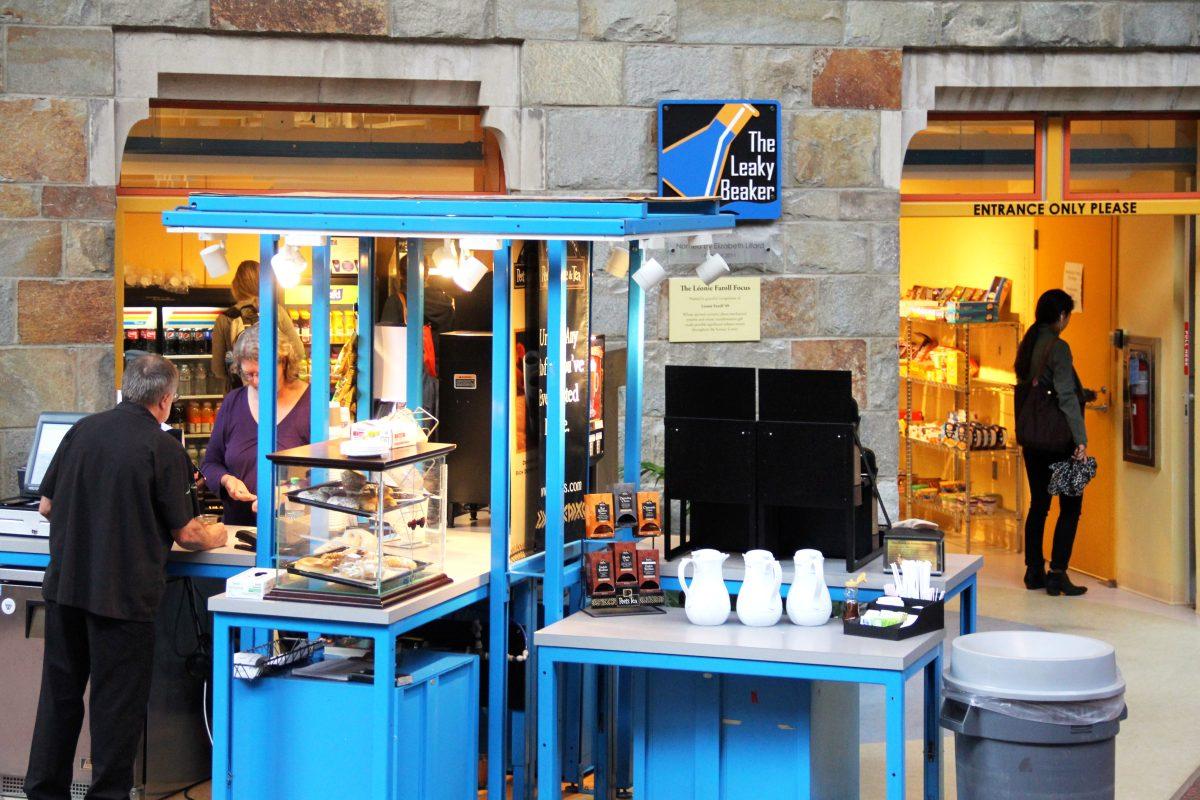The Leaky Beaker, run by Wellesley Fresh, is a popular destination for students taking refuge in the Science Center. A common question, recently posed during Senate last Monday, is why the Leaky Beaker does not accept Flex Points. Unlike the Leaky Beaker, the other on-campus vendor, the Emporium in the Lulu Chow Wang Campus Center, does accept Flex Points, which every student receives fifty dollars worth of each semester. Students are unsure why this discrepancy exists.
Jeff Dubois, who is the newly appointed assistant vice president for budget, financial planning and campus services, says that Flex Points were never held back from the Leaky Beaker due to its lower popularity levels. Instead, it is a matter of finance.
“The residential dining plan [which includes the Emporium] and all its associated costs are factored into the Board charge to students each year. The retail locations are expected to cover all incremental costs through additional cash sales,” Dubois said.
Therefore, unlike the Emporium, costs incurred at the Leaky Beaker are not covered by each student’s meal plan. If the two other retail locations on campus, the Leaky Beaker and Collins Cafe were to accept Flex Points, students would be charged more for their meal plans. Students currently pay $6,874 a year for the meal plan at Wellesley.
When the College developed its dining program, the Leaky Beaker did not exist, as it opened in 2011. At the time, the Emporium seemed to the administration like the best location to offer Flex Point service. Now that the Leaky Beaker is open, it is excluded because the current dining program structure allows for only one separate location covered by the residential dining plan. Although Dubois is new to the college, he is planning to investigate all current operations.
“I will be asking many questions and doing significant analysis on all dining operations over the next year to gain a better understanding of what is and isn’t working well and where we can change things to better suit all stakeholders in the program,” Dubois said.
The Leaky Beaker is also facing financial difficulty and is running under an annual deficit. Dubois states that the extension of Flex Points to the Leaky Beaker will only heighten its financial problems. At the Emporium, almost fifty percent of their sales are paid for with Flex Points. This spending trend could carry over to the Leaky Beaker and cause an even higher deficit. On the other hand, many students who have never purchased from the Leaky Beaker might do so if it accepted Flex Points.
“If they were to accept Flex Points, I would buy from them,” Bozena Sheidel ’18 said.
The Leaky Beaker has more limited operating hours than the Emporium as well, which is something Dubois is also trying to resolve. It is his hope that retail locations on campus will become financially independent by covering their costs, as well as extending their hours of operation. Some students think longer hours would be beneficial for the Leaky Beaker if they accepted Flex Points.
“Maybe if it was open longer Flex Points would make more sense. Then students studying late would be able to take advantage,” Nusrat Jahan ’16 said.
The dining plan structure is not set in stone, and administration is constantly evaluating and analyzing it to best suit the needs of students. However, retail businesses such as the Leaky Beaker must make sure they are able to continue operating efficiently. From a student’s perspective, not being able to spend Flex Points at the Leaky Beaker is simply inefficient.
“There is nothing more inconvenient than being hungry, and they’re overcharging as it is,” Jessica Yu ’18 said.
For now, students will have to pay cash or credit in the Science Center or make the walk to the Campus Center to spend Flex Points.
In the future, as the dining plan is re-evaluated, Flex Points may find their place at the Leaky Beaker.







